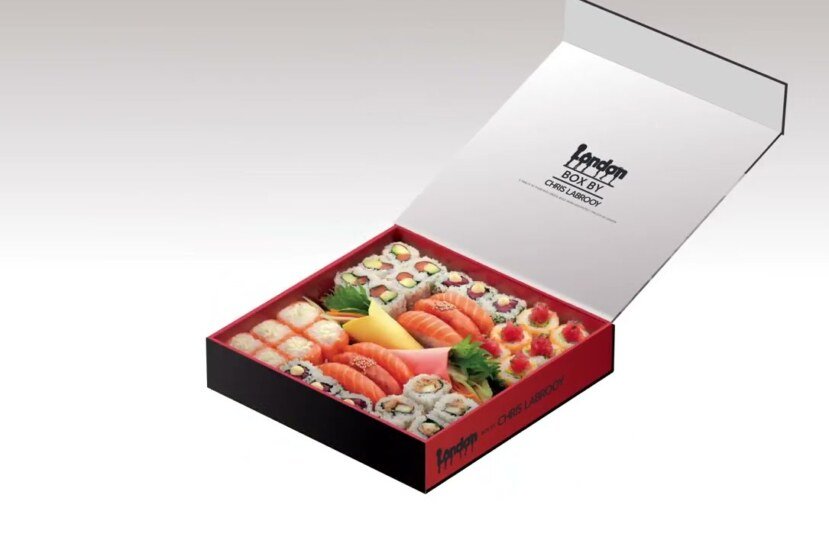Customers today look beyond food taste. People want to feel that choices made by restaurants do not harm the earth. A sushi shop that reduces waste or uses safe material sends a clear message. Customers want food damage that matches daily values.
When a person visits a sushi shop, packaging custom sushi boxes plays a major role. A box that avoids plastic connects with customers who try to reduce harm at home. Many young people in cities, including the Canada, now choose places that follow eco practices. A sushi roll in safe packaging feels more trusted than one in plastic.
A story from a small sushi shop in Canada shows this well. The owner started using boxes made from natural material. Soon, regular customers praised this move, and more new people arrived. Such steps show how eco action can build trust and keep people coming back.
How Does Eco Branding Shape A Sushi Restaurant’s Image?
Branding builds trust in the food market. Sushi shops with an eco focus appear careful about long-term impact. A shop that uses Eco-Friendly Sushi Boxes sends a message that business thinks about more than sales.
Eco branding also connects with online sharing. Many diners share food photos online. A sushi roll inside an eco box often gains more shares than plastic boxes. Social media then spreads brand stories further.
An image built through eco branding separates one shop from another. Customers remember not only the taste but also the values behind the food. Over the years, brands seen as careful and conscious have gained stronger positions in the local market.
Can Eco Packaging Improve Dining And Takeout Experience?
Sushi has a strong link with presentation. Customers want neat food that feels safe. Eco packaging plays a role here by keeping rolls secure and clean.
When someone orders sushi for delivery, packaging speaks before food does. A box that prevents leaks, holds rolls in place, and shows a clean surface improves customer trust. Strong design supports dining moments at home.
Eco packaging also adds comfort. Many believe natural material keeps food safer than plastic. A small message inside the box asking the customer to recycle creates a sense of shared role. Experience becomes about food and shared values at same time.
Why Do Sustainable Practices Attract Loyal Customers?
Loyalty in the food market comes from more than discount cards. Real loyalty grows from shared values. A sushi shop that takes eco action attracts people who hold the same beliefs.
Customers who care for the environment return again and again to a place that supports waste reduction. They bring friends and family, creating more business. Loyalty grows strong when values match.
In many cases, diners tell stories about favorite sushi shops that use safe packaging. Word of mouth grows stronger because people like sharing values with others. This becomes free marketing.
How Can Storytelling About Eco Choices Strengthen Marketing?
Marketing works best when it tells a story. Sushi already has a story about craft and tradition. Adding eco action makes the story wider.
A shop that shares the reason behind eco packaging gains more attention. For example, using custom food boxes made from safe materials can reduce local waste. Sharing that choice buildsa connection with people who want the same result.
Storytelling needs a personal voice. Customers want to know why a shop decided to change. Sharing such steps on menus, websites, or social accounts brings people closer.
Canada diners especially respond well to real stories. When a brand speaks openly about an eco journey, diners feel part of that journey. Marketing then moves beyond ads into real connection.
Do Eco Choices Create Cost Savings For Restaurants?
Restaurant owners worry about cost. Eco action may seem high at start. Over time, eco decisions can lower spending.
Recyclable options reduce repeat buying of packaging. Stronger material prevents damage, saving money. Customers also agree to pay slightly more for sushi served in eco material. They see the reason for the higher price and accept it.
Waste management bills also fall when less harmful materials are used. Shops save money in areas not always noticed at first. These savings build up over the years.
Eco action builds profit in two ways—lower costs and more loyal buyers. A sushi shop that invests in eco packaging now often grows stronger in future.
How Do Custom Packaging Options Boost Eco Marketing?
Eco action links with packaging design. Custom packaging helps sushi shops create a unique role in the market. A design shaped for rolls reduces waste and prevents spills.
Custom packaging also lets shops add names, symbols, or eco messages. This small space becomes a tool for brand communication. For example, custom boxes for sushi can carry simple text about safe material or care for the environment.
Such packaging also matches cultural design. Sushi carries strong cultural roots, and custom packaging can show that. Customers remember food not only by taste but by box holding food.
Here Packlim becomes a useful partner. Packlim offers packaging built for brand and for eco goals. Shops and startups can get packaging that fits rolls, saves space, and sends the right message.
Why Should Restaurants Partner With Experts For Eco Packaging?
Eco packaging requires planning. Wrong choices may fail to protect rolls or may confuse buyers. Working with experts saves time and avoids risk.
Packlim supports sushi shops by creating packaging that keeps food safe while helping businesses share values. For startups, this support is important since Packlim they need packaging that works within budget and also shows brand voice.
Experts also guide material choices that follow eco goals. Shops then spend less time testing many options. Focus stays on food, while packaging role stays in safe hands.
Partnership with experts leads to a stronger brand story, smoother customer experience, and wider eco impact. In a market filled with many sushi shops, expert support can be a deciding factor.
Can Eco Choices Improve Sushi Restaurant Marketing?




Leave a comment